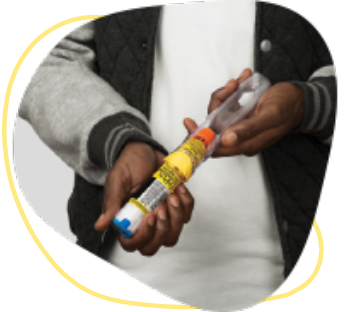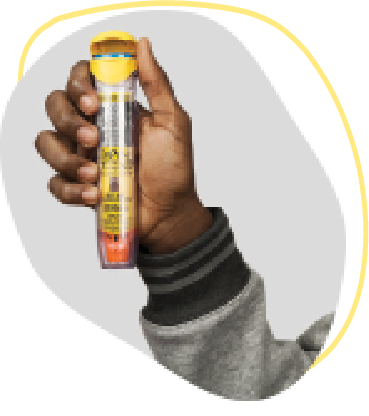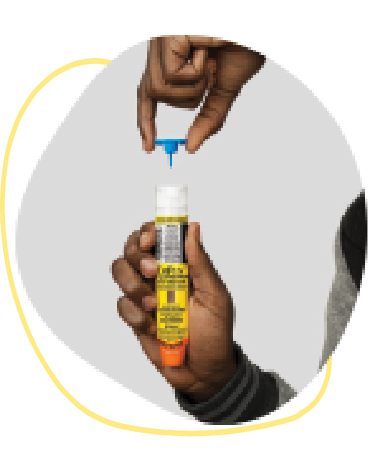When you get your EPIPEN from the pharmacy, check to make sure the blue safety top is not raised.
- If the blue safety top is raised, the auto-injector should not be used because the device could activate by accident. Do not try to push the blue safety top back down. Put the auto-injector back in the protective case and replace it with a new one.
- Examine the liquid in the medicine viewing window of your EPIPEN. Do not use the medicine if it is a pinkish or brown color or if the medicine has solid pieces floating in it.










